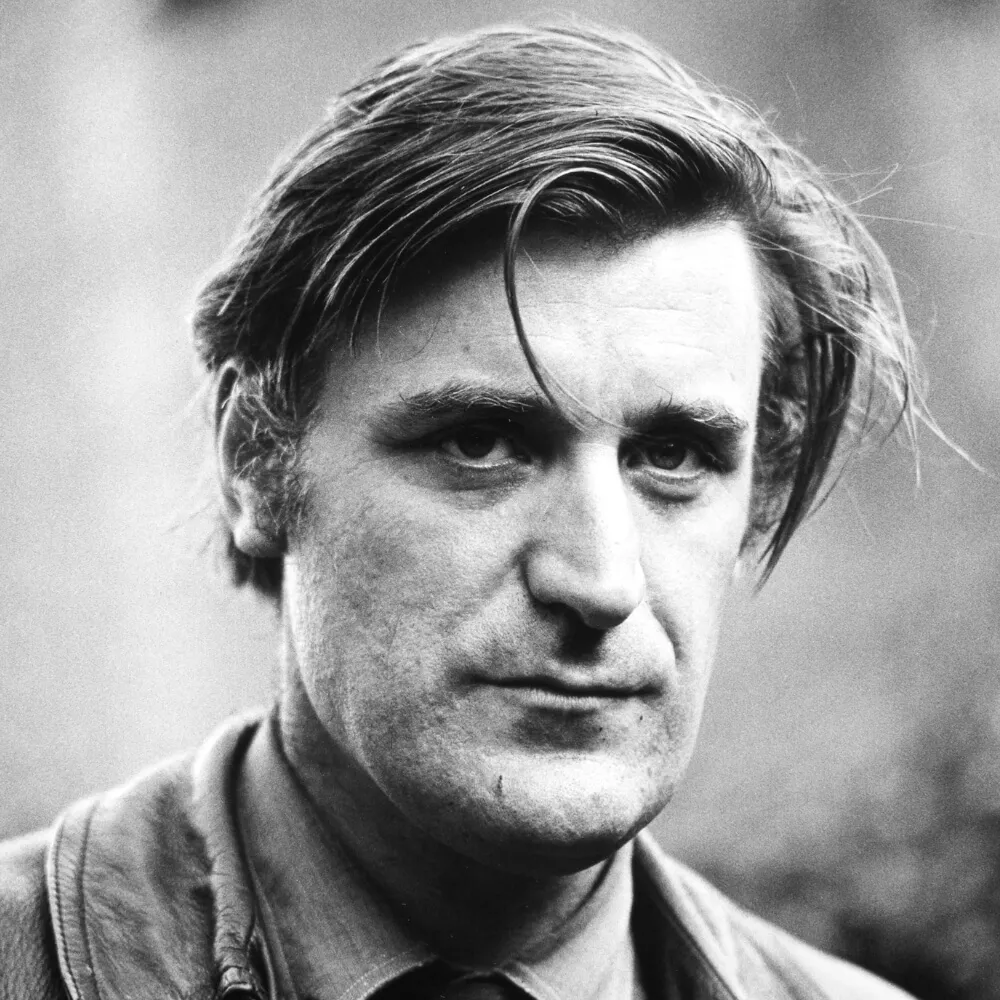
Ted Hughes (1930–1998) was one of the most influential British poets of the 20th century. Known for his vivid depictions of nature, mythology, and human struggle, his work often explored the raw, primal forces of life. As the UK’s Poet Laureate from 1984 until his death, Hughes left a profound legacy through his groundbreaking poetry and prose.
Ted Hughes Biography
Ted Hughes Poems
Ted Hughes’ poetry is marked by a raw energy, combining powerful imagery with deep philosophical and psychological insights. Here are some of his most notable works:
1. “The Hawk in the Rain”
This title poem from his first collection juxtaposes the elemental force of nature with human fragility, embodying his recurring theme of survival in a harsh world.
2. “Pike”
A haunting meditation on the predatory nature of pike, this poem reflects Hughes’ fascination with the brutality and beauty of the natural world.
3. “Crow’s Theology” (Crow, 1970)
Part of his experimental Crow collection, this poem explores themes of creation, destruction, and humanity’s place in a chaotic universe.
4. “Wind”
A dramatic depiction of a storm’s elemental power, the poem captures both nature’s grandeur and its indifference to human existence.
5. “View of a Pig”
This stark and unflinching poem offers a visceral reflection on death and physicality, illustrating Hughes’ capacity to confront uncomfortable truths.
6. “Full Moon and Little Frieda”
A tender and lyrical portrayal of a moment shared with his daughter, Frieda, this poem reveals a rare sense of wonder in Hughes’ work.
7. “Snowdrop”
A concise and evocative meditation on survival during winter, emphasizing nature’s resilience and stark beauty.
8. “Daffodils” (Birthday Letters, 1998)
Part of his introspective collection, this poem reflects on his relationship with Plath, combining memory, regret, and poignant imagery.
9. “The Thought-Fox”
A celebrated metaphor for the act of writing, this poem merges the creative process with the physical presence of a fox.
10. “Thistles”
A stark and violent depiction of nature’s cycle of struggle and renewal, this poem reflects Hughes’ fascination with perseverance and conflict.
Ted Hughes Quotes
1.“The only calibration that counts is how much heart people invest, how much they ignore their fears of being hurt or caught out or humiliated.”
2.“What happens in the heart simply happens.”
3.“My poems are not about violence, they’re about vitality.”
4.“Nothing in nature is unbeautiful.”
5.“The world is a zoo of our internalized imagery.”
6.“Fishing provides that connection with the whole living world.”
7.“Maybe all human activity is just a pursuit of meaning.”
8.“Writing is like carrying a foal. At some point, the foal kicks.”
9.“The poem builds the nest it lays in.”
10.“Poetry is the voice of the soul.”
Ted Hughes Facts
1.Hughes’ first poetry collection, The Hawk in the Rain, won the New York Poetry Center First Publication Award in 1957.
2.His marriage to Sylvia Plath became one of the most discussed literary relationships of the 20th century.
3.Hughes’ collection Crow marked a departure into darker, more experimental territory in his poetry.
4.He was deeply influenced by mythology, anthropology, and nature, which shaped much of his work.
5.Hughes also wrote acclaimed children’s books, including The Iron Man (1968), which was adapted into the animated film The Iron Giant.
6.He collaborated with Peter Brook’s theatre company on plays and translations.
7.Hughes’ appointment as Poet Laureate in 1984 underscored his significance in British literature.
8.Birthday Letters (1998) won the Whitbread Book of the Year Award and became a bestseller.
9.Hughes translated and adapted classical works, including Tales from Ovid, which won critical acclaim.
10.He was a passionate environmentalist, often highlighting humanity’s impact on nature in his work.
